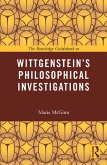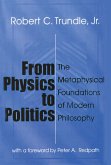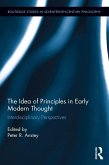Oxaal sheds new light on the theme of Wittgenstein's Jewishness, and develops a new appreciation of the Wittgenstein family and Wittgenstein's better-known years in Vienna. The author is unsparing in his observations about racism and pessimism in Berlin and Great Britian during the period in which Wittgenstein worked and studied at Cambridge.
The writing of the Tractatus spanned the First World War. In the period immediately after its completion, Wittgenstein found himself in The Hague where he was in discussions and disputes with Bertrand Russell. Oxaal covers these problems sensitively and with an appreciation of ambiguities in the life of a great philosopher and the confusions caused by a post-war change in fortunes--personal and familial. This work of an eminent social scientist and historian may not be the final statement on Wittgenstein, but it most certainly must be considered in any serious assessments of an iconic figure of the twentieth century.
Dieser Download kann aus rechtlichen Gründen nur mit Rechnungsadresse in A, B, BG, CY, CZ, D, DK, EW, E, FIN, F, GR, HR, H, IRL, I, LT, L, LR, M, NL, PL, P, R, S, SLO, SK ausgeliefert werden.









